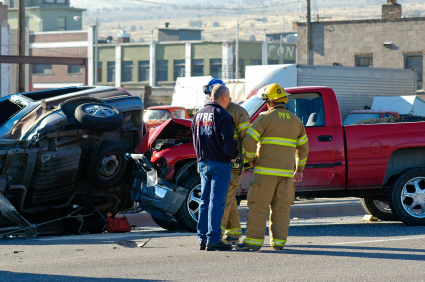WHAT HAPPENS WHEN THERE IS LIMITED INSURANCE AND MULTIPLE VICTIMS?
In some Maryland auto accidents, there is simply a limited insurance available. We see this frequently in bus accident cases and collisions involving multiple vehicles. If there are many people with injuries, the at-fault driver’s insurance policy may not be large enough to pay for those injuries. How is the money divided up?
The Set-up
An example fact pattern will help to explain this. Let’s say you are on a bus, which is hit by distracted teen who is texting on her cellphone. The teen driver has the lowest possible MAIF insurance–a policy of $30,000 per person, and $60,000 per accident in liability coverage. That means that her insurance company will pay a maximum of $30,000 for each victim, with limits of $60,000 to pay to all victims in a single accident.
 Maryland Car Accident Lawyer Blog
Maryland Car Accident Lawyer Blog


 I’ve had a few sad cases recently. In each case, my client was injured in an accident. In each accident, there were other people injured, as well. My clients went to the hospital, and were treated for their injuries. Neither of my clients had health insurance. Neither of them had
I’ve had a few sad cases recently. In each case, my client was injured in an accident. In each accident, there were other people injured, as well. My clients went to the hospital, and were treated for their injuries. Neither of my clients had health insurance. Neither of them had